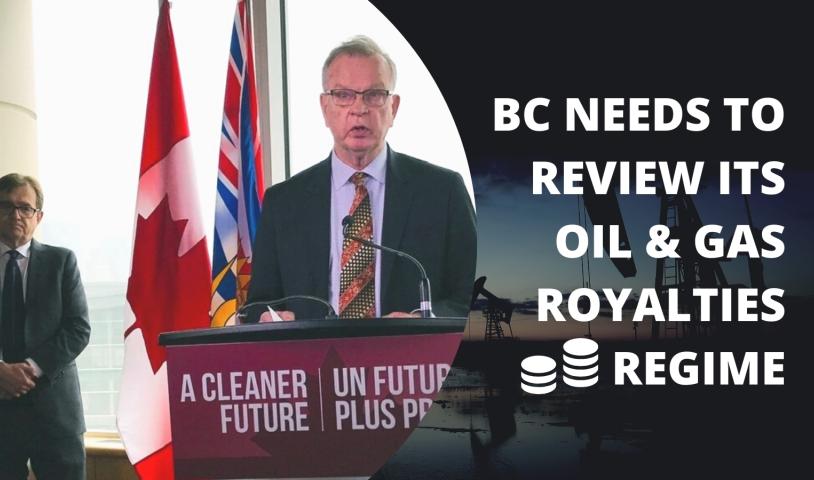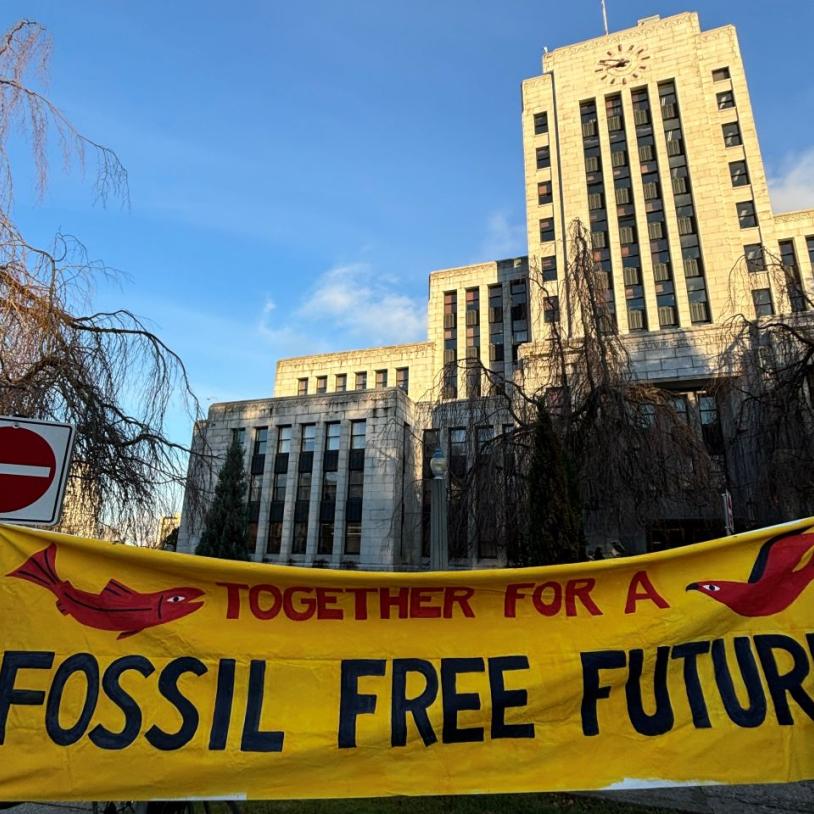Civil society groups call on government to conduct open, and independent review of B.C. oil and gas royalties
Thursday, May 27, 2021
Unceded Coast Salish Territories (VANCOUVER, B.C.) — Today, 14 environmental and civil society groups published an open letter calling on British Columbia’s Minister of Energy, Mines and Low Carbon Innovation Bruce Ralston to adopt an open, fair, and independent framework for the review of B.C.’s oil and gas royalty regime.
The review was promised in the NDP’s 2020 election platform, in part in response to public pressure around the massive tax loopholes in the current royalty regime, which environmentalists and some taxpayer advocates consider fossil fuel subsidies. These royalty credits have led to steep declines in the royalties paid into the provincial treasury while oil and gas production has continued to rise.
“This review comes at a critical point, as the province struggles to meet its climate targets, and to set a path for the economic transition that those targets require. We believe that the royalty review can and should be used as a tool to help achieve our climate targets,” said Sven Biggs, Canadian Oil and Gas Program Director for Stand.earth. “However, this review will only have value if it is open, fair, and based on independent science and economics.”
Royalties paid on gas production and leases of Crown land, generated record returns to the public of $3.7 billion in 2008/2009. They have declined steadily since and averaged just $150 million per year since 2015/16. By contrast, B.C.’s gas production has increased substantially in recent years, up about 84 per cent in 2019 compared to 2007. Meanwhile, fossil fuel subsidies have risen dramatically in recent years, falling just short of $1 billion in 2019/20 - four times the revenue the province generated from oil and gas royalties that year. Of particular concern is the excessively generous Deep Well Royalty Credit, a fossil fuel subsidy for fracking wells. For successive years, the tax credit has been greater than the royalties paid by the companies, leaving the provincial government with an outstanding liability of at least $2.6 billion.
“With returns to the public from royalty payments so low, it is important that whatever process the government puts in place to review royalty rates is both fair and transparent,” said Ben Parfitt, a resource policy analyst with the Canadian Centre for Policy Alternatives. “The public deserves to know that the highest possible returns are realized from exploiting these resources, especially now when we know how vital it is to rapidly wind-down all oil and gas extraction,”
Currently, oil and gas activity produces 20 per cent of B.C.’s emissions, but contributes only three per cent to provincial GDP, and represents just 0.5 per cent of jobs in the province. The government's policy of low royalties and high fossil fuel subsidies is one of the key reasons we are not on track to meet our climate targets, which is why Bruce Ralston must adopt an open, fair, and independent framework for the review of B.C.’s oil and gas royalty regime.
###
Media contacts:
Sven Biggs, Canadian Oil and Gas Program Director, Stand.earth, 778-882-8354 sven@stand.earth
Ben Parfitt, resource policy analyst, Canadian Centre for Policy Alternatives, 250-580- 4304 ben@policyalternatives.ca





